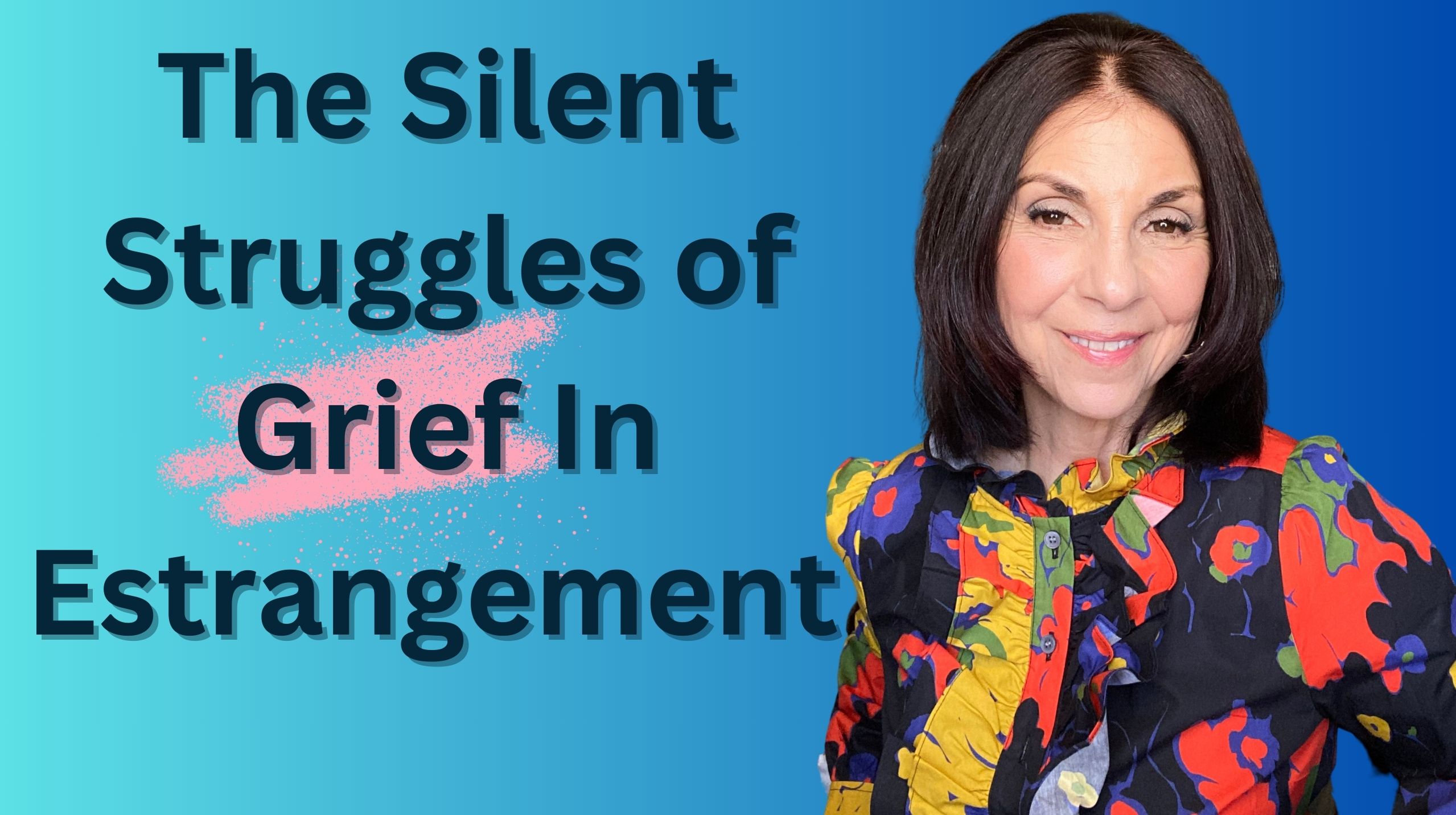Family estrangement is a painful and often silent struggle that touches many people’s lives. Similar to the grief we experience from a death, estrangement brings a unique set of emotions, as the door to reconnection remains open, even if it’s just slightly. The emotional toll of estrangement can feel like mourning a loved one but with added layers of guilt, uncertainty, and emotional turmoil. If you’ve ever been estranged from a family member, you’ll know that the journey through this grief is complicated. In this blog, we’ll explore the stages of grief associated with family estrangement, why society often avoids the topic, and how you can begin to navigate this extremely personal experience.
Stage 1: Shock
When estrangement first happens, it often feels like your world has been turned upside down. The initial shock can be overwhelming, leaving you emotionally paralyzed. Whether the estrangement was sudden or gradually built up over time, the impact hits hard. You might feel disbelief, confusion, and emotional numbness as your mind tries to protect you from fully understanding the gravity of the loss.
Shock is a normal part of the grieving process. It’s your body and mind giving you time to adjust. Allow yourself to sit with these feelings. There’s no timeline for how long this stage will last, and that’s okay.
Stage 2: Denial
Denial can creep in after the initial shock as a way to protect yourself from the harsh reality. You may say, “This can’t be real,” or, “They’ll come back.” In family estrangement, denial often involves holding on to hope that the relationship will mend, even when there are no signs of reconciliation.
Denial isn’t about ignoring the problem but instead about easing yourself into accepting the situation. While frustrating, it’s a natural coping mechanism that gives you time to absorb the pain slowly.
Stage 3: Anger
Anger is one of the most intense emotions in the grief process. In the context of family estrangement, anger can manifest in several ways — you might feel angry at the person who cut ties, at yourself for things left unsaid, or even at the world for the unfairness of the situation. Anger, though uncomfortable, is a necessary part of healing. It often acts as an outlet for the deep hurt beneath the surface.
The key to moving through this stage is finding healthy ways to express your anger. Journaling, physical activity, or talking to a trusted friend can help you process these emotions without letting them consume you.
Stage 4: Bargaining
Bargaining is an emotional stage where you may think, “If only I had done things differently,” or “Maybe if I apologize again, things will get better.” This stage reflects your desire to repair the relationship and regain control over an uncontrollable situation. You may even reach out to your estranged loved one in hopes of reconciliation, sometimes to no avail.
While the urge to fix things is understandable, it’s important to recognize that bargaining is often driven by guilt and self-blame. Learning to accept that some things are out of your control is an essential part of moving forward.
Stage 5: Depression
Depression in family estrangement can feel heavy and all-consuming. The sadness, isolation, and sense of hopelessness that accompany the loss of a loved one can also be present in estrangement. The ongoing nature of the separation — the possibility of reconnection that never quite materializes — can weigh heavily on your emotional well-being.
It’s important to acknowledge your feelings during this stage and seek support if needed. Talking to a counselor or therapist can help you process your grief and navigate this overwhelming stage.
Stage 6: Guilt
Guilt often plays a significant role in family estrangement. You might replay events, wondering what you could have done differently to prevent the estrangement. This guilt can be extreme if the estrangement occurs after a heated argument or long-standing family issues. Sometimes, people even feel guilty for relief if the relationship is strained and difficult.
It’s essential to recognize that guilt is a natural emotion in estrangement, but it doesn’t have to control your healing. Acknowledging your guilt and practicing self-compassion is vital to accepting the situation and moving forward.
Stage 7: Acceptance
Acceptance doesn’t mean that everything is resolved or that you’ve fully healed from the loss. Instead, it’s about acknowledging the reality of the situation and learning to live with it. Acceptance allows you to recognize that you may not have control over whether the relationship is repaired, but you do have control over how you respond to the situation.
Acceptance also involves finding peace within yourself, even if the relationship remains fractured. While you may always hold hope for reconciliation, acceptance frees you from the emotional burden of constantly expecting things to change.
Radical Acceptance: A Path Toward Healing
Radical acceptance takes the concept of acceptance a step further. It involves acknowledging reality as it is without trying to change or resist it. This doesn’t mean you approve of the situation, but it does mean you stop fighting against it. Radical acceptance allows you to release the bitterness, anger, and guilt that may keep you stuck.
By embracing reality, even when it’s painful, you can begin to move forward and make space for healing. This mindset shift can open the door to new possibilities and help you break free from cycles of suffering.
Living Again: Practicing Self-Care
As you move through the stages of grief, self-care becomes more important than ever. Healing from family estrangement is a long and often unpredictable journey, so being kind to yourself is necessary. Whether journaling, spending time with supportive friends, or simply taking time for rest and reflection, self-care can help you healthily process your emotions.
Remember, healing doesn’t mean forgetting or dismissing the relationship that was lost. It means learning to live fully despite the pain and finding moments of peace and joy along the way.
Conclusion: Hope and Healing
Family estrangement is a harrowing experience, but it’s important to remember that you are not alone. Many people are walking this path, and while the road is difficult, healing is possible. As you navigate the stages of grief, be patient with yourself and know that each step brings you closer to finding peace. Whether or not reconciliation occurs, your journey toward healing is valid and worthy of support.
If you’re struggling with family estrangement, remember to take things one day at a time, surround yourself with compassion, and continue practicing self-care. There is always hope for healing, even if it comes in small, gradual steps.







